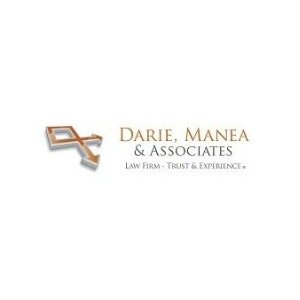Best Tax Lawyers in Romania
Share your needs with us, get contacted by law firms.
Free. Takes 2 min.
Or refine your search by selecting a city:
List of the best lawyers in Romania
About Tax Law in Romania
Tax law in Romania is governed by the Fiscal Code, which outlines the regulations regarding taxation applicable to individuals and businesses within the country. The Romanian tax system is structured around several types of taxes, including income tax, corporate tax, VAT, and property tax. Understanding the Romanian tax obligations is crucial for both residents and non-residents conducting business or earning income in Romania. Compliance with these laws is essential to avoid legal issues and penalties.
Why You May Need a Lawyer
There are numerous situations where you might require legal help with tax matters in Romania. Some common scenarios include:
- Complex tax disputes or audits from the tax authorities.
- Planning to minimize tax liabilities legally.
- Need for advice on cross-border transactions and their tax implications.
- Assistance with tax compliance for businesses or start-ups.
- Ensuring you are taking full advantage of available tax incentives and credits.
- Dealing with inheritance or gift taxes in Romania.
Consulting with a tax lawyer can provide clarity and guidance through the complexities of Romanian tax law, ensuring both compliance and optimization of your tax obligations.
Local Laws Overview
Romanian tax laws incorporate several key aspects that individuals and businesses should be aware of:
- Income Tax: Romania implements a flat tax rate of 10% on personal income for residents. Non-residents are taxed at different rates depending on the type of income.
- Corporate Tax: The standard corporate tax rate is 16%. However, certain small enterprises may qualify for microenterprise tax rates.
- Value Added Tax (VAT): The standard VAT rate is 19%, with reduced rates of 9% and 5% for specific goods and services.
- Property Tax: Local authorities levy taxes on property ownership, with the rates depending on the type and location of the property.
- Withholding Taxes: Romania imposes withholding taxes on various types of payments, such as dividends and royalties, at differing rates, with potential reductions available under double tax treaties.
Staying informed about these local laws can help manage financial obligations effectively and prevent potential issues with tax authorities.
Frequently Asked Questions
1. What is the deadline for filing income tax returns in Romania?
The deadline for submitting annual income tax returns in Romania is usually by the 25th of May of the subsequent year.
2. Are there any tax exemptions for expatriates in Romania?
Expatriates may benefit from certain tax exemptions under specific conditions, especially if there are applicable treaties between Romania and their home country regarding tax reductions or exemptions.
3. How does the Romanian tax system treat foreign income?
Residents in Romania are taxed on their worldwide income, but credits and exemptions may apply for taxes paid abroad, depending on international tax agreements.
4. What taxes apply to businesses operating in Romania?
Businesses in Romania are subject to several taxes, including corporate income tax, VAT, social contributions, and payroll taxes for employees.
5. How can one obtain a VAT registration in Romania?
Businesses must apply for VAT registration through the Romanian tax authorities. Registration is mandatory once the annual turnover threshold is exceeded or for specific business types.
6. Are there incentives for foreign investors in Romania?
Yes, Romania offers several incentives for foreign investors, including tax holidays and reductions for certain sectors and business activities.
7. Can taxes in Romania be paid online?
Yes, Romanian taxes can be paid online through the National Agency for Fiscal Administration (ANAF) portal, which provides electronic tax processes.
8. What are the consequences of non-compliance with tax laws in Romania?
Non-compliance with tax obligations can result in fines, penalties, and in severe cases, legal action. Regular audits may also be conducted to ensure compliance.
9. How does Romania tax dividends?
Dividends in Romania are typically subject to a 5% withholding tax, with variations possible under specific international treaties.
10. Do real estate transactions in Romania attract specific taxes?
Real estate transactions are subject to transfer taxes and VAT depending on the nature of the transaction and the parties involved.
Additional Resources
For additional assistance and information, consider contacting the following resources:
- National Agency for Fiscal Administration (ANAF): The primary tax authority in Romania providing comprehensive resources on tax obligations.
- Ministry of Finance: Offers insights into financial legislation and taxpayer services.
- Chamber of Tax Consultants in Romania: Offers professional services and advice on tax consultancy.
Next Steps
If you need legal assistance in tax matters in Romania, consider the following steps:
- Identify specific areas where you need assistance.
- Research and contact qualified tax lawyers or tax consultancy firms in Romania.
- Prepare all necessary documents and information regarding your tax situation for consultation.
- Discuss your case and strategies for resolving any issues with your legal advisor.
Ensuring you engage with experienced professionals will help you navigate the complexities of Romanian tax laws effectively.
Lawzana helps you find the best lawyers and law firms in Romania through a curated and pre-screened list of qualified legal professionals. Our platform offers rankings and detailed profiles of attorneys and law firms, allowing you to compare based on practice areas, including Tax, experience, and client feedback.
Each profile includes a description of the firm's areas of practice, client reviews, team members and partners, year of establishment, spoken languages, office locations, contact information, social media presence, and any published articles or resources. Most firms on our platform speak English and are experienced in both local and international legal matters.
Get a quote from top-rated law firms in Romania — quickly, securely, and without unnecessary hassle.
Disclaimer:
The information provided on this page is for general informational purposes only and does not constitute legal advice. While we strive to ensure the accuracy and relevance of the content, legal information may change over time, and interpretations of the law can vary. You should always consult with a qualified legal professional for advice specific to your situation.
We disclaim all liability for actions taken or not taken based on the content of this page. If you believe any information is incorrect or outdated, please contact us, and we will review and update it where appropriate.
Browse tax law firms by city in Romania
Refine your search by selecting a city.

















